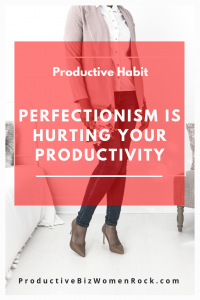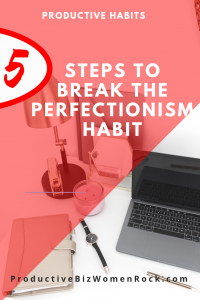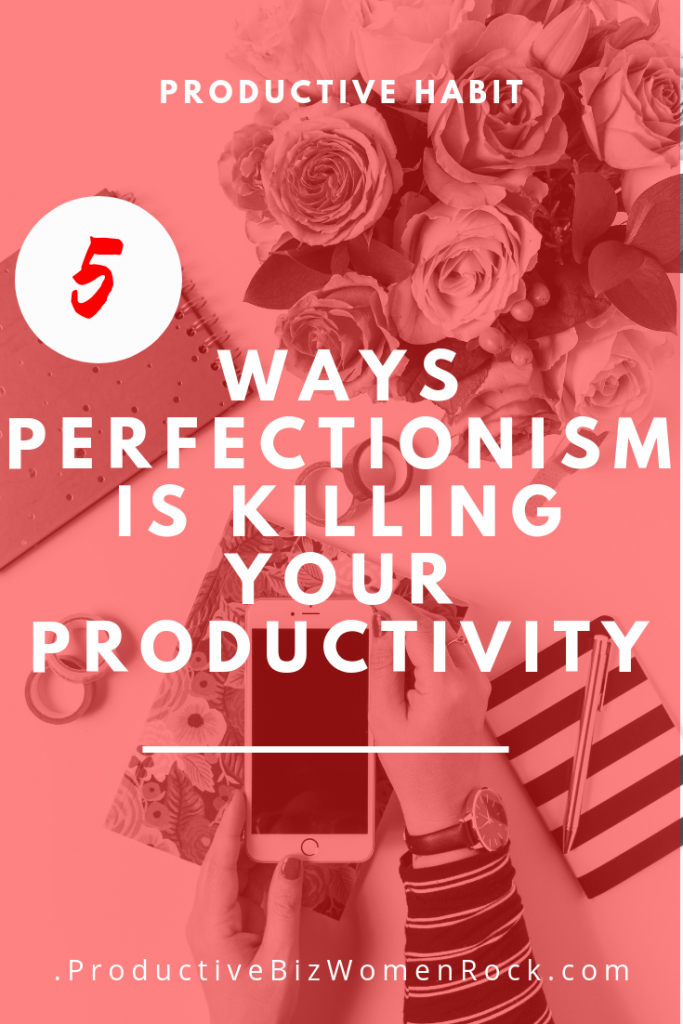“Perfectionism is the voice of the oppressor, the enemy of the people. It will keep you cramped and insane your whole life, and it is the main obstacle between you and a shitty first draft. I think perfectionism is based on the obsessive belief that if you run carefully enough, hitting each stepping-stone just right, you won’t have to die. The truth is that you will die anyway and that a lot of people who aren’t even looking at their feet are going to do a whole lot better than you, and have a lot more fun while they’re doing it.”
― Anne Lamott
I’m a reformed perfectionist. So I can empathize if you’re the type of person who is constantly paralyzed by self-imposed expectations.
Perfectionism is a common cause of procrastination. Perfections hold themselves to ultra-high standards an won’t accept anything less. The upside of this trait is that it can spur an individual to produce work of amazing quality and startling depth. The downside is that it can prevent you from moving forward in the first place.
I grew up as a perfectionist. Everything I produced had to be flawless. This character quirk, followed me all the way through school to Corporate America. And when I left the corporate world to build my business.
Perfectionism destroys relationship, hampers careers and is on e of the chief causes of unhappiness and frustration. It’s also a surefire productivity killer, an effect we’ll talk about in more detail in a moment.
The tendency to want to be perfect stems from a variety of reason. Some of us were raised to meet others higher expectations, and have carried that anxiety with us into adulthood. In our minds, imperfection equates to failure. Others have imposed upon themselves performance stands that have little do with realistic expectation.
Here’s the worst part: its celebrated in our society. Kids are encouraged to study for hours just to achieve perfect scores on tests. Employees are pressured to turn in reports and fish projects with zero errors. Perfectionism is praised as an asset.
Being perfect is unnecessary.
Perfectionism is harmful to your productivity.
How Perfectionism is Hurting Your Productivity
Perfectionism completely skewed my perspective on what constituted acceptable work. Perfectionism undermines your productivity in four ways.
First, it prevents you from getting things done. You’re focused on completing your current task with zero errors that you can rub yourself of the time needed to complete other tasks.
Second, it elevates your stress level. You don’t need me to tell you that stress and anxiety negatively affects your productivity.
Third, it encourages procrastination. Its easier to continue working on a current task than to start a new one, especially if the new one requires stepping outside your comfort zone. That can easily erode your motivation to take action and start rationalizing putting things off just to make sure the task you’re working on is error-free.
Fourth, perfectionism harms your self esteem. Being perfect is impossible. No one achieves it over the long run. Striving for it is a recipe for frustration and disappointment, especially if your self image is tied to unreasonable expectations.
5 Actionable Steps to Break the Perfectionism Habit
- Shift your focus from perfecting your work to finishing it. Start slowly. Apply this shift in focus to a single task
- Ask yourself whether the time and effort you plan to invest will help you to achieve a specific goal.
- Create obstacles that “short-circuit” your habit for perfectionism. For example stand up from your desk and walk away the moment you notice yourself trying to perfect something you’re working on. Take a moment to recalibrate your focus toward completing the task at hand rather than perfecting it.
- Embrace your mistakes. Instead of criticizing yourself, use mistakes as learning opportunities. Use them to expand your knowledge, improve your work habits and become a better entrepreneur.
- Identify the worst possible outcome that can occur if you make a mistake. For example if your blog post contains a misspelled word will you lose clients. Chances are, you and your blog post survive.
Your inner perfectionist is a tyrant that adds little value to your life Or as the acclaimed novelist Anne Lamott once said, “perfectionism is the voice of the oppressor.” Quiet that voice and you’ll be less inclined to procrastinate.






Leave a Reply